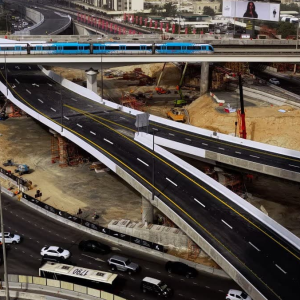A Human Story Behind the Sky Lockdown
When airspace over Qatar and the UAE closed suddenly on June 23, the world experienced an unexpected pause in the skies—yet what might have looked like chaos quickly revealed extraordinary examples of human empathy, adaptability, and ingenuity.
The Moment Everything Changed
Just after 9 PM local time, passengers across the globe—on board flights mid‑air and those waiting to take off—were met with an alarming message: do not depart. Qatar and the UAE, typically the crossroads of global travel thanks to bustling hubs in Doha, Dubai, and Abu Dhabi, shut down their skies entirely. The move came in response to intense geopolitical tensions in the region. Flights already en route were abruptly rerouted, put on hold, or returned to their origin. In less than an hour, the global aviation network ground to a halt—yet, even in that disruption, possibilities emerged.
People First: Stranded, But Safe and Cared For
Imagine a traveler from Lucknow, a tourist from Amritsar, or business executives flying in from Mumbai—suddenly rerouted over the Arabian Sea. Many ended up landing in unexpected places like Bahrain, Muscat, or Riyadh. Without exception, airlines and airport teams sprang into action. In Doha’s lounges, support staff offered hot meals and blankets. In Indian airports, extra counters were opened to rebook tickets and extend accommodations. Friendly volunteers shared local SIM cards and phone chargers. In Dubai, even though flights were grounded, the city’s calm and normality were a reminder: daily life continues amid the turbulence.


Airlines Rewriting the Rules in Real Time
Carriers like Qatar Airways, Emirates, Etihad, IndiGo, Air India, and others faced a monumental task. Flight plans were rewritten mid‑air, crews were reassigned, and fuel‑stop strategies revised mid‑flight. Data analysts and aviation teams marshaled satellite maps and flight‑tracking apps, while pilots charted safe courses around closed zones.
One notable ripple effect: Air India halted operations not just in the Gulf, but permanently canceled flights to Europe and North America—all due to these constrained routes passing through that same busy gateway region. Domestic airlines like IndiGo turned major Indian airports into regional divert hubs, coordinating departures and arrivals across multiple time zones.

Cooperation Across Borders
It wasn’t just airlines stepping up. Authorities in Oman, Bahrain, Kuwait—even India—opened their airports to unscheduled landings, offering fuel, food, and shelter. Doha’s emergency services continued streamlined operations, clearing diverted flights quickly. Social media brimmed with photos of airline staff kneeling to collect luggage, pushing carriages, and comforting overwhelmed travelers. It wasn’t merely a logistical response—it was a human one.

Stress, Sure—But Creativity Too
Under stressful conditions, we often uncover human creativity at its best. Passengers spontaneously formed chat groups to share updates and advice. Local businesses near airports offered discounted meals. Hotels provided complimentary stays when bookings were canceled over closed airspace. Airlines relaxed baggage policies, waived change fees, and even offered lounge upgrades to offset disruption. In crisis, empathy thrives when protocols flex.
What It Means for Travelers
Frequent travelers will likely reevaluate the unpredictability of global flight paths. But that doesn’t spell doom for travel—it signals resilience. Airlines and governments now see the necessity of contingency systems. For flights bound across the Gulf, shifting plans earlier may become standard. Travelers might begin checking a “Geopolitical Safety” rating alongside weather and destination reviews.
Taking Away Hope and Innovation
Every challenge holds opportunity. This crisis spurred airline apps to include dynamic route‑risk alerts. It pushed insurance companies to rethink coverage frameworks. Airport authorities are rethinking infrastructure design for surges in diverted flights. Tourism officials are reviewing strategies to mitigate local economic disruption. Most importantly, people saw once more what they’re capable of in solidarity.
Looking to the Future: Clearer Skies Ahead?
- Aviation Technology
Expect faster algorithms that help redirect planes instantaneously around emerging hot zones. Real‑time risk tagging and global coordination mean future reroutes will be smoother. - Crisis-Ready Airports
Airports across the globe are investing in scalable operations: reserve lounges, modular terminals, quick‑response accommodation—all to cater to sudden visitor surges. - Traveler Empowerment
Soon, your smartphone may notify you not only of flight delays—but of geopolitical warnings tied to route-in-use. Travelers might receive safe‑route scorecards, or access an emergency hotline for rerouting. - Policy Evolution
Governments and international aviation bodies are collaborating more closely. Shared protocols for safe air corridors, quick‑deploy response teams, and shared data networks could redefine how quickly airspace decisions are made and reversed.

In Retrospect: An Uplifting Pause
At first glance, the airspace closure might seem like a global disaster. But peel back the layers and you’ll find remarkable tenacity in people and systems. Airlines turned planning rooms into command centers; airport volunteers became spontaneous guardians; travelers reached out to one another with empathy and encouragement. A technical shutdown became a showcase of emotional strength.
Final Thoughts
The world’s skies resumed their familiar patterns within hours—but the value of that sudden halt remains. It taught us the importance of foresight, the beauty of cooperation, and the depth of compassion when circumstance demands it. In that human response lies the promise: no matter what the skies bring, we have the ability to rise, adapt, and keep moving forward—together.
Do follow UAE Stories on Instagram
Actor Vineet Kumar Back Home After Being Stuck in Dubai Amid Middle East Crisis















